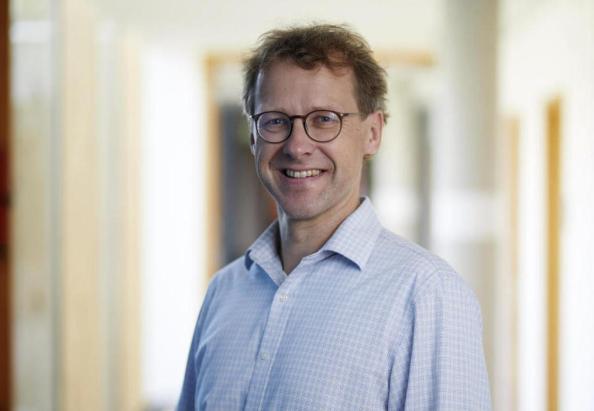Principal Teaching Faculty
Ten professors from all four partner institutions form the Principal Teaching Faculty (PTF), which is the governing body of the IMPRS-KIR.
They represent a wide range of historical disciplines, including the history of science, technology, and medicine, media and regional studies, and art history. PTF members serve as IMPRS-KIR dissertation supervisors and select the candidates for each cohort of doctoral students.
Etienne Benson is a Director at the Max Planck Institute for the History of Science in Berlin (MPIWG), where he leads Department II, “Knowledge Systems and Collective Life.”
His research focuses on the history of science, politics, and the environment in the United States and Europe from the eighteenth century to the present.
He is the author of two books, Wired Wilderness: Technologies of Tracking and the Making of Modern Wildlife (Johns Hopkins University Press, 2010) and Surroundings: A History of Environments and Environmentalisms (University of Chicago Press, 2020), as well as articles on human-animal relations, conservation and environmentalism, and the environmental and Earth sciences. His current work examines the political and scientific implications of the development of a quantitative science of landscapes in the mid-twentieth century.
Etienne Benson received his doctorate in History, Anthropology, and Science, Technology and Society from the Massachusetts Institute of Technology in 2008. He has held positions as a postdoctoral fellow at Harvard University, a research scholar at the Max Planck Institute for the History of Science, a lecturer at the University of Chicago and New York University Berlin, and a visiting scholar at the Rachel Carson Center for Environment and Society in Munich. From 2013 to 2022, he was a faculty member in the Department of History and Sociology of Science at the University of Pennsylvania, where he served as chair of the undergraduate program in Science, Technology, and Society and of the graduate program in History and Sociology of Science. He has been a director at the Max Planck Institute for the History of Science since 2022.
Find out more about Etienne Benson on the MPIWG website.
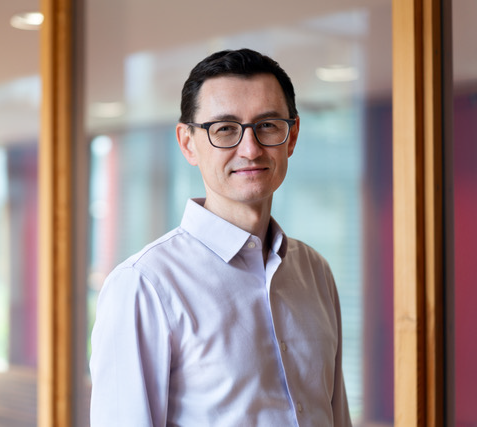
Karin Gludovatz, professor of art history at Freie Universität Berlin, specializes in the art and visual/material cultures of the late medieval and early modern period in Western Europe, particularly the historic Netherlands (now Belgium and the Netherlands) and England.
She is interested in image theory; the material culture of royal courts; the intertwining of art and colonial politics; the materiality, mediality, and topology of the illuminated codex; and forms, functions, and theories of the marginal.
In her current book project, Karin Gludovatz examines topological structures in fifteenth-century Netherlandish panel painting, asking whether its orientation on the surface can be understood as a specific order of visibility that designs an alternative view of extra-pictorial reality and thus also represents an alternative mode of experiencing “world” and generating knowledge about that world. Another project uses the example of the seventeenth-century Dutch colonization of Brazil to address the procedures of generating and disseminating knowledge under colonial conditions through artistic production, natural history, and artifacts.
Karin Gludovatz studied at the University of Vienna and the University of Hamburg and earned her doctorate in Vienna in 2004 with a dissertation on the poetics of artists’ signatures. After working at the University of Vienna, the University of Applied Arts Vienna, the Berlin University of the Arts, Freie Universität Berlin, and, as guest professor, the University of Hamburg, she was appointed professor at Freie Universität Berlin in 2012. She was also dean of the Department of History and Cultural Studies from 2013 to 2017.
Please find out more about Karin Gludovatz on the FU Website.
Anke te Heesen is professor of the history of science at Humboldt-Universität zu Berlin.
Her research has focused on the history of collections, scientists’ notation systems, art and science, and the history of the humanities.
Most generally, she is interested in different knowledge objects and their histories. Her books analyze eighteenth-century picture encyclopedias (Wallstein, 1997/University of Chicago Press, 2002), the modern newspaper clipping (Fischer, 2006/Manchester University Press, 2014), and the museum object (Junius, 2012). In 2008, she was awarded the Aby Warburg Prize for her research. She is currently working on the history of the interview and has recently published on Thomas Kuhn and the “Sources for History of Quantum Physics” (1961–64), one of the very first empirically oriented projects in the history of science.
Interested in the history of practices and materials in the sciences and humanities as part of a larger history of knowledge, Anke te Heesen combines theoretical reflection with practical involvement such as exhibitions or interview projects. At present, she is working on a collaborative project that historicizes the “applied humanities,” addressing the techniques that led to the emergence and reorientation of new disciplines in the modern period.
Anke te Heesen has taught and curated in many places, among them the Hygiene Museum in Dresden and, as a founding director, the Museum Universität Tübingen. For several years, she was a research fellow at the Max Planck Institute for the History of Science, Berlin.
Anke te Heesen is currently one of the IMPRS-KIR’s three Speakers.
Find out more about Anke te Heesen on the HU website.
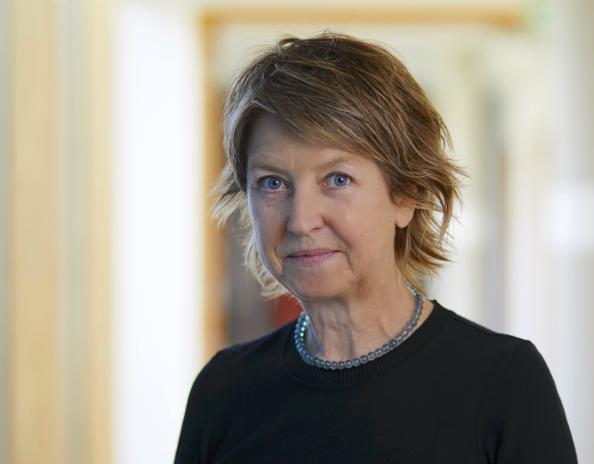
Cale Johnson is professor of the history of knowledge in the ancient world (Wissensgeschichte des Altertums) at Freie Universität Berlin.
His research focuses on the origin and early development of writing in Mesopotamia and the history of Babylonian medicine.
His current work on proto-cuneiform looks into how iconic representations of vessels were used to extend the proto-cuneiform writing after its initial invention, in particular how they were used to encode social roles and offices in the context of diacritical feasts at the end of the fourth millennium BCE.
Over the last decade, Johnson has also focused on making sense of the compendia at the heart of the Babylonian medical tradition, including work on the BabMed Project. He is currently finishing an edition of the gastrointestinal treatise from the Nineveh Medical Encyclopedia in collaboration with Krisztián Simkó.
Cale Johnson studied Assyriology, comparative Semitics, and linguistics at UCLA, receiving his PhD in Assyriology in 2004 with a dissertation on applicative constructions in Sumerian. After postdoctoral positions in Los Angeles and Berlin, he was university lecturer in Assyriology at Universiteit Leiden and senior lecturer at the University of Birmingham, and was appointed professor at Freie Universität Berlin in 2020.
Find out more about Cale Johnson on the FU website.
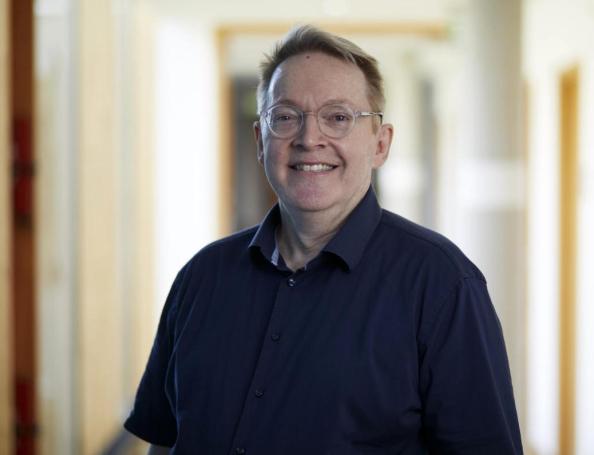
Christine von Oertzen is Principal Investigator of the research group “Data, Media, Mind” at the Max Planck Institute for the History of Science (MPIWG) and professor of media practices in the Media Studies Department of Berlin’s Humboldt-Universität.
Her research combines a focus on the material culture and epistemologies of personal data with a keen interest in pushing the boundaries of history of science further toward a history of knowledge by engaging with media and gender studies, the histories of bureaucracy, the social, human, and cognitive sciences, and citizen science.
Christine von Oertzen has published widely on gender relations in society and science and the material culture of collecting, processing, and visualizing data. In her current work, she examines the dependence of knowledge on materials and their supply. Looking at different epistemic media—such as paper forms or children’s toys—she examines the making, testing, and use of research tools and how they shape methods and practices of investigation, as well as workflows and communication within bureaucratic, domestic, social, and political realms.
A long-term research group leader at the MPIWG, Christine von Oertzen earned her PhD at Freie Universität Berlin and was a research scholar at the German Historical Institute in Washington, DC, before teaching at the Technische Universität Berlin and Technische Universität Braunschweig.
Christine von Oertzen is one of the IMPRS-KIR’s three Speakers.
Find out more about Christine von Oertzen on the MPIWG website.
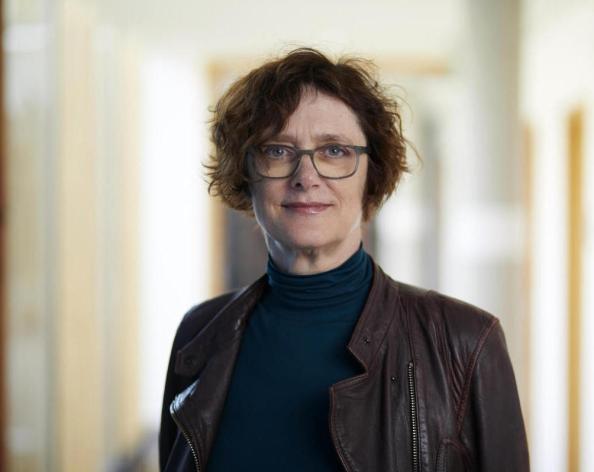
Since January 1, 2024, Jürgen Renn has been Director at the Max Planck Institute of Geoanthropology in Jena.
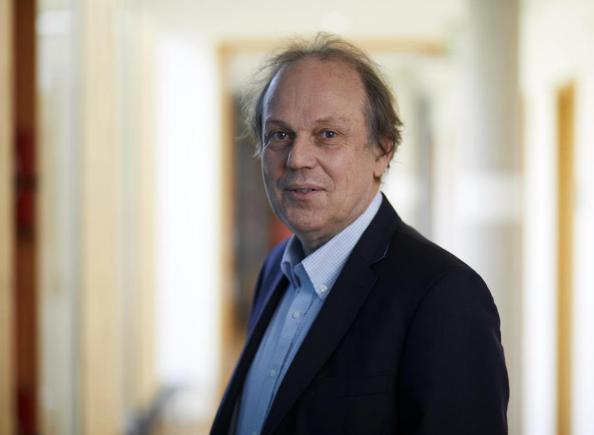
Dagmar Schäfer is a Director at the Max Planck Institute for the History of Science in Berlin (MPIWG), where she leads Department III, “Artifacts, Action, Knowledge.”
Her research interests range from the history and sociology of technology of China to the paradigms configuring the discourse on technological development past and present.
Dagmar Schäfer has published widely on the premodern history of China (Song-Ming), the processes and structures that lead to varying knowledge systems, and the changing role of artifacts—texts, objects, and spaces—in the creation, diffusion, and use of scientific and technological knowledge.
Schäfer’s monograph The Crafting of the 10,000 Things (University of Chicago Press, 2011) received the Pfizer Award and Levenson Prize. Recent publications include a special issue of Technology and Culture coedited with Simona Valeriani, “Technology Is Global: The Useful & Reliable Knowledge Debate,” and the forthcoming Ownership of Knowledge: Beyond Intellectual Property (coedited with Annapurna Mamidipudi and Marius Buning, Brill, 2022). In 2020, the German Research Foundation (DFG) awarded her the Gottfried Wilhelm Leibniz Prize for her development of new approaches to cultural studies and comparative perspectives on a comprehensive global history.
Dagmar Schäfer trained as a sinologist and historian of science and technology. She earned her doctorate at Würzburg in 1996 and her habilitation in 2005. After leading an MPIWG Independent Research Group on the history of science and technology in China, she was appointed Chair of China Studies and History of Technology at the University of Manchester in 2011, before joining the MPIWG as a Director in 2013.
Dagmar Schäfer is one of the IMPRS-KIR’s three Speakers.
Find out more about Dagmar Schäfer on the MPIWG website.
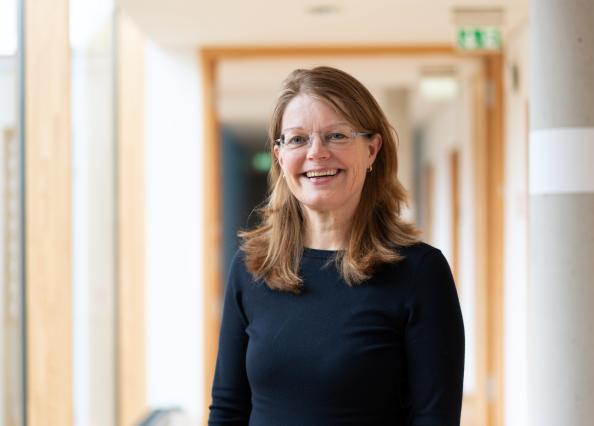
Friedrich Steinle is professor of the history of science at Technische Universität Berlin.
His research focuses on the dynamics of scientific concepts and on the history of experiment, color knowledge, and electricity.
Friedrich Steinle's current research asks how eighteenth-century color knowledge was established by both practitioners and academics, creating different bodies of knowledge that came into contact and sometimes into conflict. The case exemplifies the full scope of historical aspects we need to address in order to understand developments of this kind: from epistemic goals to social status, from styles of thinking to publication resources, from economic needs to biographical baggage. Resources of knowledge in all their variety are at the core of the dynamics of this fascinating episode.
His monographs include Newton’s Manuskript “De gravitatione” (Franz Steiner, 1991) and Exploratory Experiments: Ampère, Faraday, and the Origins of Electrodynamics (University of Pittsburgh Press, 2016); he has edited books including Scientific Concepts and Investigative Practice (De Gruyter, 2012, with Uljana Feest) and Colour Histories: Science, Art, and Technology in the 17th and 18th Centuries (De Gruyter, 2015, with Magdalena Bushart). He is a member of the Deutsche Akademie der Naturforscher Leopoldina and the Akademie der Wissenschaften und der Literatur in Mainz.
Trained in physics, Friedrich Steinle earned his PhD with a dissertation on the formation of Newton’s fundamental concepts in mechanics, then switched to studies of experimental practice in early electromagnetism. He was Senior Fellow at the Dibner Institute for the History of Science and Technology and has held positions in Hamburg, Bern, Lyon, and Wupppertal and took up his Berlin professorship in 2009.
Find out more about Friedrich Steinle on the TU website.
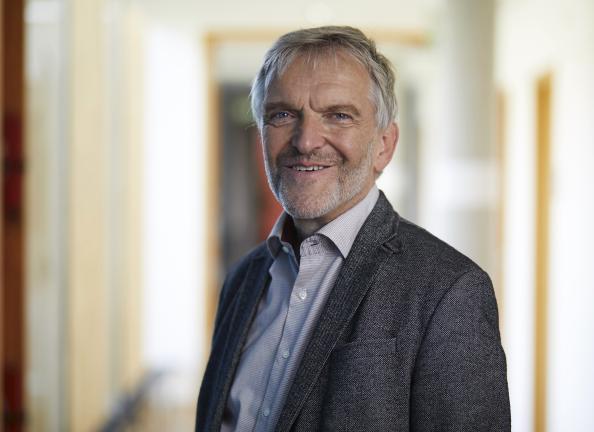
Viktoria Tkaczyk is professor of media and knowledge techniques at Humboldt-Universität zu Berlin.
She has published widely on the history of aviation, architecture, acoustics, the neurosciences, experimental aesthetics, and sound media in the early modern and modern periods.
Her first book, Himmels-Falten: Zur Theatralität des Fliegens in der Frühen Neuzeit (Fink, 2011), on flying machines in early modern science and theater, won the Ernst Reuter Dissertation Prize in 2008 and the Book Award of the Amsterdam School of Cultural Analysis in 2012. Among her most recent publications is Thinking with Sound: A New Program in the Sciences and Humanities around 1900 (University of Chicago Press, 2023). Currently, she is working on a new book project, entitled Technologies of the Humanities, and on a collective project that explores how humanistic and scientific technologies interlink with geopolitics and resource economics.
After receiving her PhD in theater studies from Freie Universität Berlin, Viktoria Tkaczyk was a Feodor Lynen Fellow at the History of Science Lab REHSEIS (CNRS) in Paris. From 2011 to 2014, she was assistant professor of arts and new media at the University of Amsterdam and a Dilthey Fellow at the Max Planck Institute for the History of Science, Berlin (MPIWG). From 2015 to 2020, she headed the research group “Epistemes of Modern Acoustics” at the MPIWG and the project “Epistemic Dissonances: Objects and Tools of Early Modern Acoustics” at Freie Universität Berlin (German Research Foundation), in addition to initiating the database “Sound & Science: Digital Histories.”
Until August 2023, Viktoria Tkaczyk was one of the IMPRS-KIR’s three Speakers.
Find out more about Viktoria Tkaczyk on the HU website.
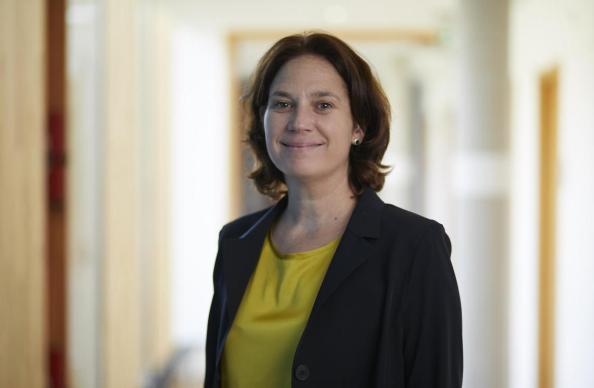
Heike Weber is professor of the history of technology at Technische Universität Berlin.
Her research focus lies at the intersection of history of technology, environmental history, and consumption history.
Heike Weber has worked on twentieth- and twenty-first-century everyday technologies such as household appliances and mobile devices. More recent publications focus on the history of reuse, repair, waste, and recycling (The Persistence of Technology. Histories of Repair, Reuse and Disposal, edited with Stefan Krebs), and Rethinking waste within business history (edited with Chad Denton). Taking an “envirotech” perspective, Heike Weber and her team at TU Berlin are exploring past sociotechnical shifts (e.g., in mobility, energy, resource use) as potentially “useable pasts” for future more sustainable transitions.
These studies have led her to wider research questions in the field of “discard studies.” Why, when, and how are machines, infrastructures, or artifacts eventually decommissioned, and what processes lie behind obsolescence? What practices and forms of knowledge are involved when industry, society, or individual actors scrap, discard, or abandon residues? Following technology’s path beyond innovation and use helps us to perceive the manifold and distinct temporalities incorporated in technology. Twentieth-century concepts of obsolescence, for instance, are related to temporal predications within innovation theories; material residues or ruins have become part and parcel of long-term engineering tasks such as remediation or aftercare for legacies.
Before coming to TU Berlin, Heike Weber was professor of the history of technology and environmental history at Bergische Universität Wuppertal (2013–17), then worked at the Karlsruher Institut für Technologie. She was a guest researcher at the Smithsonian (Washington, DC) and the EHESS (Paris). She is currently active in the Association of German Engineers VDI and its history of technology axis.
Find out more about Heike Weber on the TU website.
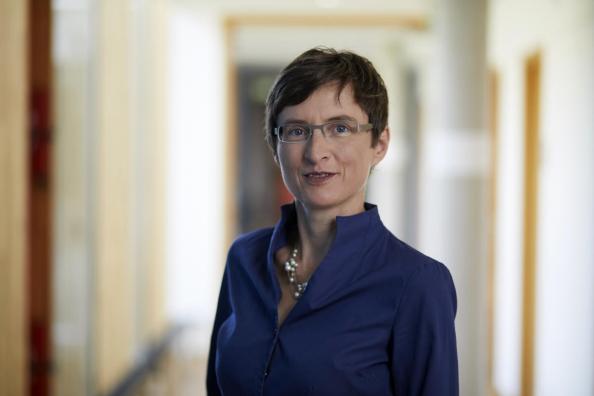
Guest
Members of the Extended Teaching Faculty (ETF) enrich the teaching activities of the IMPRS-KIR.
This wider circle of scholars may co-teach one of the first-year seminars, serve as mentors, organize master classes, tutorials, workshops, or participate in the bi-monthly jour fixe.
ETF colleagues come from all academic ranks, from the Max Planck Institute for the History of Science, the Berlin universities, and our international cooperation partners in Philadelphia (University of Pennsylvania) and Singapore (Nanyang Technological University, Singapore University of Technology and Design). They are appointed by the PTF for a one-year commitment, which can be extended.
Shih-Pei Chen is IT Researcher and Senior Research Scholar in Department III, “Artifacts, Action, and Knowledge,” of the Max Planck Institute for the History of Science.
She is a Digital Humanities specialist trained in computer science. Shih-Pei’s research focuses on applying information technologies to advance historical research, in particular textual analysis, research tool design, geospatial mapping, and visual analytics.
Shih-Pei is currently working on two projects: “Local Gazetteers” and “Everyday Knowledge and Its Sources in the Sinosphere, 14th to 20th Centuries.” In the former, her team has developed a research tool called LoGaRT that allows scholars to collect historical data from local gazetteers, a long-standing genre for recording local conditions across historical China. Visual statistical analytics then help scholars to obtain global patterns from these data and gain deep empirical understanding of the genre and of the empire. Based on this experience, Shih-Pei’s team plan to extend their technologies to another type of text, the household encyclopedia. They aim to trace the sources of the everyday knowledge that appears in such texts and to understand how knowledge was selected, circulated, and produced as the intellectual focus of society in late Imperial China shifted from imperial elite knowledge to daily knowledge.
As a representative of the MPIWG IT Research Group in the Extended Teaching Faculty of the IMPRS, Shih-Pei helps to design and organize the IMPRS campus curriculum on the topic of Digital Humanities.
Find out more about Shih-Pei Chen on the MPIWG website.
Glenn Most is Professor Emeritus of Greek Philosophy at the Scuola Normale Superiore di Pisa and External Scientific Member of the Max Planck Institute for the History of Science.
Find our more about Glenn Most on the MPIWG website.
Lisa Onaga is a Senior Research Scholar at the Max Planck Institute for the History of Science (MPIWG).
Her research focuses on the ownership and authorship of knowledge at the material interface of animal and human life in agricultural, laboratory, health, and industrial settings. At the MPIWG, she leads the “Proteins and Fibers” working group, which examines the histories how various expert communities create, use, and analyze animal materials to deepen historical understandings of animal-human interactions.
Lisa Onaga's current project uses sociologically informed historical methods to investigate how silk weaving has scaffolded knowledge related to life and livelihood in Amami Ōshima, southwestern Japan. She is completing a book, Cocoon Cultures: The Entanglement of Biology and Silk in Japan since 1840 (Duke University Press), that examines how the control of the environment and genetics of an insect for industrial silk manufacture underpins the history of the life sciences in Japan.
Her research outlook reflects her commitment to interdisciplinarity, born of her doctoral training in Science & Technology Studies at Cornell University and postdoctoral training at the Institute for Society and Genetics at UCLA. Her research has been supported by institutions including the Deutsche Institut für Japanstudien, the Institute for Advanced Studies on Asia, National Science Foundation, Fulbright-IIE, Social Science Research Council, The D. Kim Foundation, and the Singapore Ministry of Education. Prior to joining the MPIWG, Lisa Onaga was a faculty member of the history program at Nanyang Technological University in Singapore and a lecturer at UCLA.
Lisa Onaga coordinates the Methods Intensive Master Class series and other activities that enrich the MPIWG campus curriculum offerings for the doctoral students.
Find out more about Lisa Onaga on her personal website.
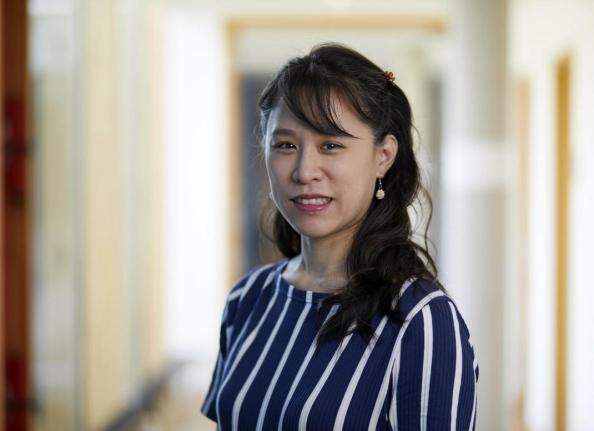
Hansjakob Ziemer is Senior Research Scholar at the Max Planck Institute for the History of Science (MPIWG) and its Head of Cooperation and Communication.
Find out more about Hansjakob Ziemer on the MPIWG website.
